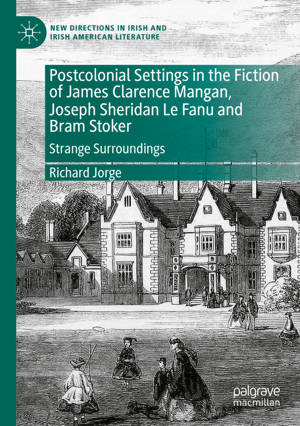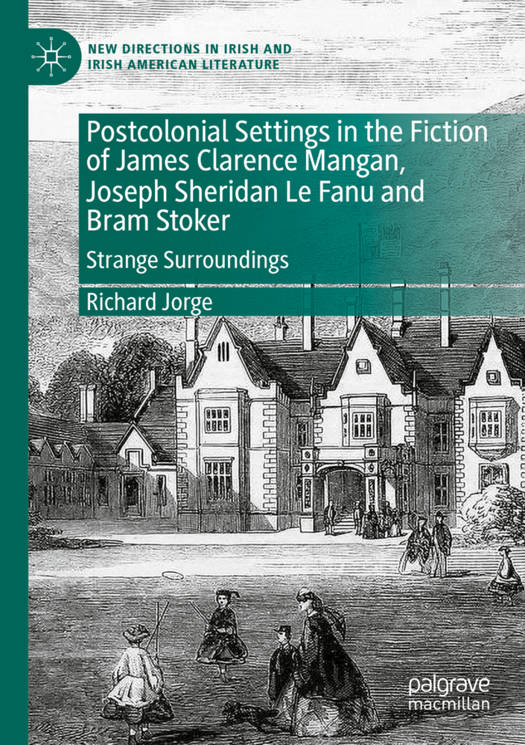
Bedankt voor het vertrouwen het afgelopen jaar! Om jou te bedanken bieden we GRATIS verzending (in België) aan op alles gedurende de hele maand januari.
- Afhalen na 1 uur in een winkel met voorraad
- In januari gratis thuislevering in België
- Ruim aanbod met 7 miljoen producten
Bedankt voor het vertrouwen het afgelopen jaar! Om jou te bedanken bieden we GRATIS verzending (in België) aan op alles gedurende de hele maand januari.
- Afhalen na 1 uur in een winkel met voorraad
- In januari gratis thuislevering in België
- Ruim aanbod met 7 miljoen producten
Zoeken
Postcolonial Settings in the Fiction of James Clarence Mangan, Joseph Sheridan Le Fanu and Bram Stoker
Strange Surroundings
Richard Jorge
€ 160,45
+ 320 punten
Uitvoering
Omschrijving
This book explores how three Anglo-Irish writers, J.C. Mangan, J.S. Le Fanu and Bram Stoker, use settings in their short fictions to recreate, depict and confront Ireland's colonial situation in the nineteenth century. This study provides an innovative approach by targeting a genre (the short story) which has not been explored in its entirety- certainly not within nineteenth century Ireland - much less using a postcolonial approach to the short story. Added to this is the fact that it analyses how these writers used settings as an anticolonial tool. To do so, the book is divided into two major sections, an analysis of Irish settings and non-Irish ones. It works on the premise that all three writers used the idea of displacement to target colonialism and its effects on Irish society. In short, this book addresses a gap in scholarship, as the Irish Gothic short story as a decolonizing tool has not been sufficiently and globally studied.
Specificaties
Betrokkenen
- Auteur(s):
- Uitgeverij:
Inhoud
- Aantal bladzijden:
- 201
- Taal:
- Engels
- Reeks:
Eigenschappen
- Productcode (EAN):
- 9783031403934
- Verschijningsdatum:
- 27/10/2024
- Uitvoering:
- Paperback
- Afmetingen:
- 148 mm x 11 mm
- Gewicht:
- 281 g

Alleen bij Standaard Boekhandel
+ 320 punten op je klantenkaart van Standaard Boekhandel
Beoordelingen
We publiceren alleen reviews die voldoen aan de voorwaarden voor reviews. Bekijk onze voorwaarden voor reviews.









